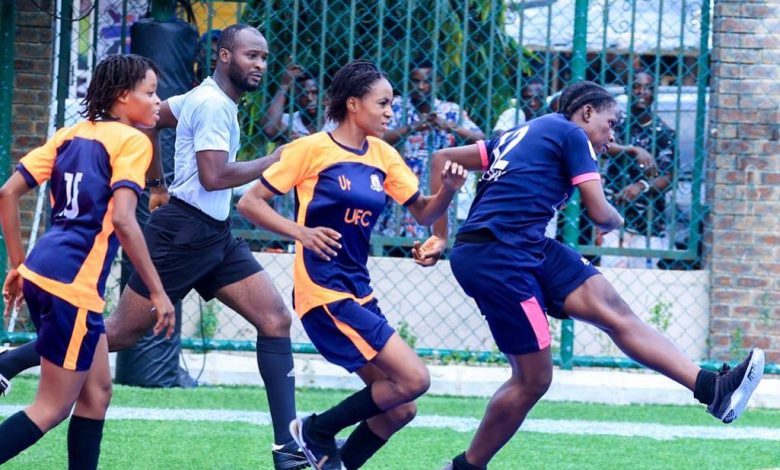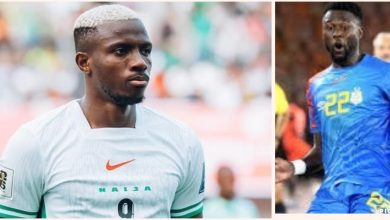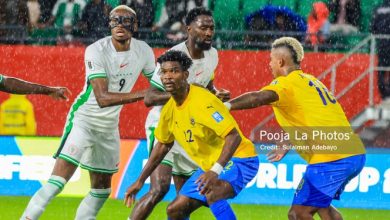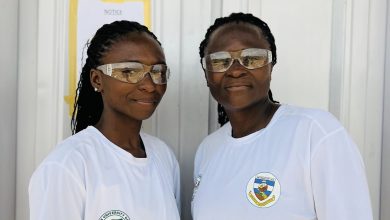Inside the Mind of a Futsal Visionary: Adams Kolapo’s Fight to Bring Back Nigeria’s Indoor Football Glory
Despite neglect from sporting authorities, Coach Adams Daud Kolapo believes futsal can transform Nigerian football and empower young players—if only it gets the recognition it deserves.

In a country where football dominates every street corner, conversation, and dream, few dare to champion the quieter, faster, and more tactical cousin of the beautiful game—futsal.
For Coach Adams Daud Kolapo, a Level One England–certified futsal coach, the neglect of this high-intensity indoor sport in Nigeria is both frustrating and motivating. In this exclusive interview with Awijare Sports, Kolapo speaks passionately about futsal’s struggles, potential, and the future he envisions for it.
A Game That Chose Him
“What initially drew me to futsal was the game’s unique blend of skill, strategy, and excitement,” he began. “It’s fast-paced, played on a smaller pitch with a smaller ball, and demands sharp technique, quick decision-making, and creativity. In Nigeria, where football overshadows nearly everything, I saw an opportunity for futsal to complement football and develop players differently.”
Read Also: Osimhen’s European Brilliance: The Night a Nigerian Star Lit Up Amsterdam
The Struggles Beneath the Surface
Kolapo admits the journey has not been easy.
“The biggest challenges are funding, facilities, and recognition,” he said. “Courts that meet international standards are rare. The few available are poorly maintained. Without recognition, it’s hard to attract sponsors or even get media attention. Football always takes center stage, and futsal is left fighting for scraps.”
A Pathway Still in Shadows
For young players, the lack of structure is the biggest barrier.
“There’s no clear professional pathway,” Kolapo explained. “Talented players often switch to football because that’s where visibility and money are. It’s painful because futsal builds skills that make players better footballers—ball control, agility, and creativity—but we’re yet to create a proper ecosystem for them to thrive.”
Read Also: Lagos Urgency – The Daily Rhythm of Survival in Nigeria’s City of Motion
Changing the Narrative
Asked about how he handles the perception that futsal is just a casual pastime, Kolapo smiled knowingly.
“You know, I hear that a lot! Most people think it’s recreational because they’ve never really watched it. I invite them to games, show them the intensity, and they’re shocked. Futsal is pure speed, tactics, and skill. When people see that, their perspective changes instantly.”
The Technical Beauty of Futsal
Kolapo believes futsal builds a smarter, sharper type of player.
“The smaller space forces quick thinking and precise movements,” he said. “Players learn to read the game, create space, and make decisions under pressure. These are priceless skills for any footballer.”
He has seen firsthand how futsal improves players’ performance on the bigger pitch.
“Players who play futsal have incredible control and confidence,” he added. “Especially among female players—their agility, balance, and low center of gravity make them formidable. Futsal sharpens everything.”
Read Also: FC Robo Queens, Dannaz Ladies, and Pacesetters Shine Bright on Queens Cup 2025 Matchday Two
The Financial Gap
The financial disparity between futsal and traditional football is staggering.
“It’s tough,” Kolapo admitted. “We barely get sponsorships or government support. Football attracts all the money and attention, but futsal is still trying to get noticed.”
His Vision for the Game
Despite the odds, Kolapo’s vision remains clear.
“To elevate futsal in Nigeria, we need a national league, grassroots programs, proper coaching education, and international exposure,” he emphasized. “If we can combine structure with marketing, the sport will grow faster than people expect.”
Coaching for Love, Not Luxury
When asked what keeps him going despite the challenges, Kolapo didn’t hesitate.
“The love for the game,” he said simply. “Seeing my players grow, develop, and achieve their goals makes it all worth it. I remember one young girl who struggled to make her school team. Today, she’s one of the best in her group. That’s why I keep doing this.”
A Hopeful Future
Looking ahead, Kolapo envisions a vibrant futsal landscape in Nigeria.
“In five years, I want to see a strong national league, international tournaments, and grassroots programs across the country,” he said. “The inaugural Women’s Futsal AFCON and FIFA Women’s Futsal World Cup are great signs. They’re giving the sport visibility and inspiring young girls everywhere.”
His optimism shines through. “It’s an exciting time for futsal,” Kolapo concluded. “If we keep pushing, it’ll soon get the recognition it truly deserves.”




